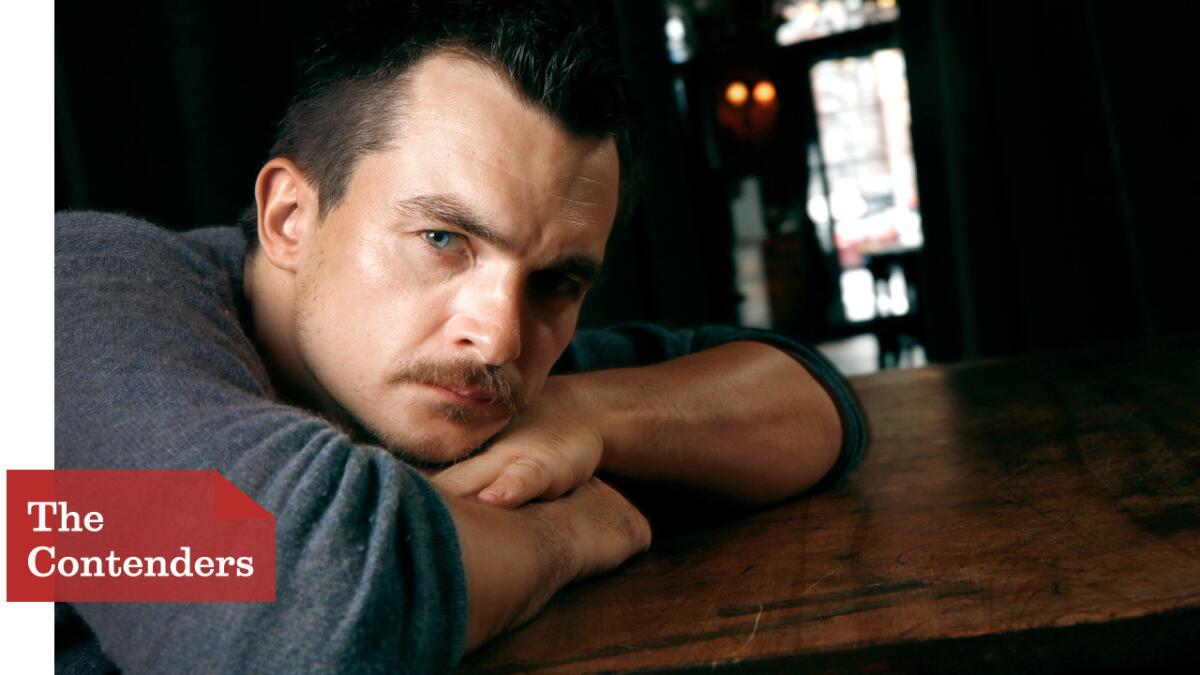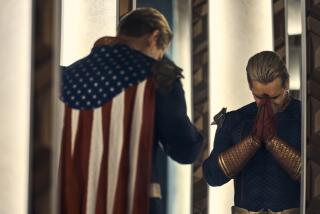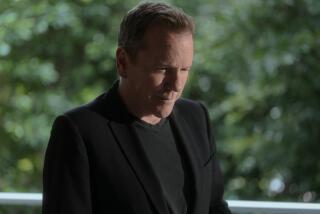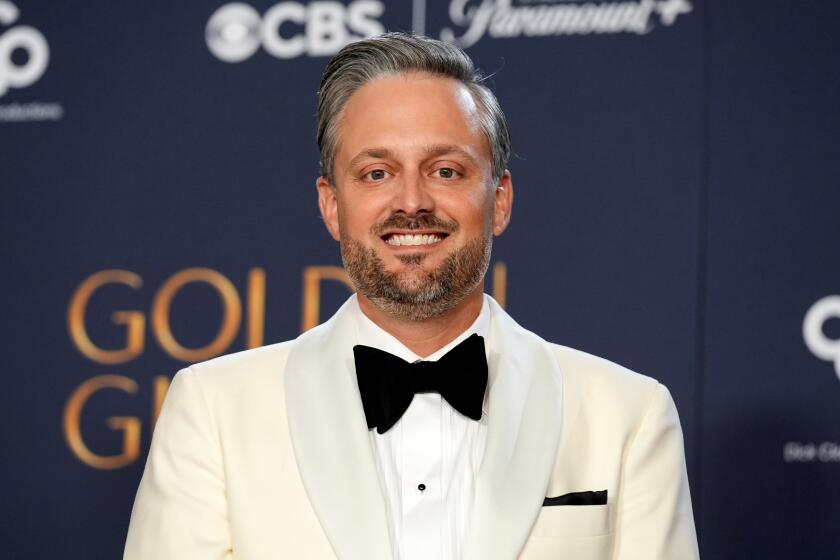Rupert Friend of ‘Homeland’ will be anyone you want him to be

Rupert Friend of “Homeland” will be anyone you want him to be as he uses his “strongest tool,” imagination.
- Share via
reporting from NEW YORK — “Homeland’s” Peter Quinn is not to be trifled with: He’s a crack shot and a tireless investigator for the CIA, though not without flaws (he’s just begun an inadvisable relationship with Claire Danes’ volatile Carrie Mathison, and he once stabbed a suspect through the hand). Rupert Friend, who plays Quinn on the Showtime series, may not be an assassin, but he could be. In fact, give him a few weeks of study and he’ll be anyone you want. And he’s full of surprises: When the British actor sat for an interview in an Italian restaurant near his New York City home, he ordered in fluent Italian, then went on to discourse on everything from Philippine knife-fighting to Ernest Hemingway.
Here’s just a taste of what the 2013 Emmy nominee had to say.
FULL COVERAGE: Emmys 2015
You decided to learn Italian after watching “The Godfather,” which is an interesting inspiration to take from that film.
It’s so rarely spoken, when you find someone who does speak it, it’s sort of a secret code you have. Those codes exist all over the world, whether it’s film geeks talking about camera lenses or Hemingway freaks talking about early manuscripts. It’s like saying, “You’re in my tribe,” and you can engage with that.
When you’re playing Quinn, how, other than changing your accent, do you make him “American”?
Less observation, more imagination. That’s my strongest tool, the power to imagine something because it’s all fake and yet it’s all real. Between truth and lies, the middle is art and storytelling.
The presence of props, even if the audience never sees them, seems to heighten things for actors.
When we did the knife stabbing with Damian [Lewis] in the beginning of my time on “Homeland,” obviously we never stabbed him in the hand, but I had a real switchblade in my pocket the whole time. Nobody else knew that, but the fact that it was there made it safe enough to be dangerous in a safe way. I find that an exciting place to be in when you’re acting.
You’ve got “Hitman: Agent 47” coming out in August, and he makes me think of Quinn on steroids. This is your first big action film. How did you find it different from your other projects?
There’s a lot less standing around and talking, more running around and fighting people. I loved getting to grips with the physical fitness and dexterity — I did all the stunts myself. I love learning things, whether it’s a language or Philippine knife-fighting or the Viennese waltz. I find dipping one’s toe into all of these people’s lives is one of the major exciting points of being an actor. This dilettantism.
How bad an idea is it for Peter and Carrie to be getting into a relationship on “Homeland”?
It’s a terrible idea. It’s like putting two people who are recovering alcoholics together; they prey on each other’s Achilles’ heels. They’re both a little unhinged; they both deal in death and destruction daily and get paid for it. You’ve got to be a certain kind of person to say, “I will kill someone for money.” Let’s not forget this.
How did you get the acting bug in the first place?
The short answer is: I didn’t. I got the “I don’t want the normal job” bug. At home we have countless career advisors who would tell us to work in department stores and stay below the bar and not overreach our grasp. I didn’t believe any of them. They tell you, “You’re a people person and you like the outdoors. Why not work in a garden center?” And it’s, like, why shouldn’t that person aspire to design the grounds of Buckingham Palace? Let’s aim the bar a little higher than that.
You’re a British actor who’s spent the last few years playing an American; are you yearning to play roles again that are a little more like your own background?
One so rarely acts as oneself in one’s home. You’re always pretending on so many levels. There are so many levels of self-deception that I’ve never differentiated in the things that might be similar to me. To me, the place doesn’t affect the work. It’s an imaginative thing we do; it’s about immersing oneself in one’s imagination. If you’re a novelist, you do it with pen and paper. We do it with our bodies.
More to Read
From the Oscars to the Emmys.
Get the Envelope newsletter for exclusive awards season coverage, behind-the-scenes stories from the Envelope podcast and columnist Glenn Whipp’s must-read analysis.
You may occasionally receive promotional content from the Los Angeles Times.






